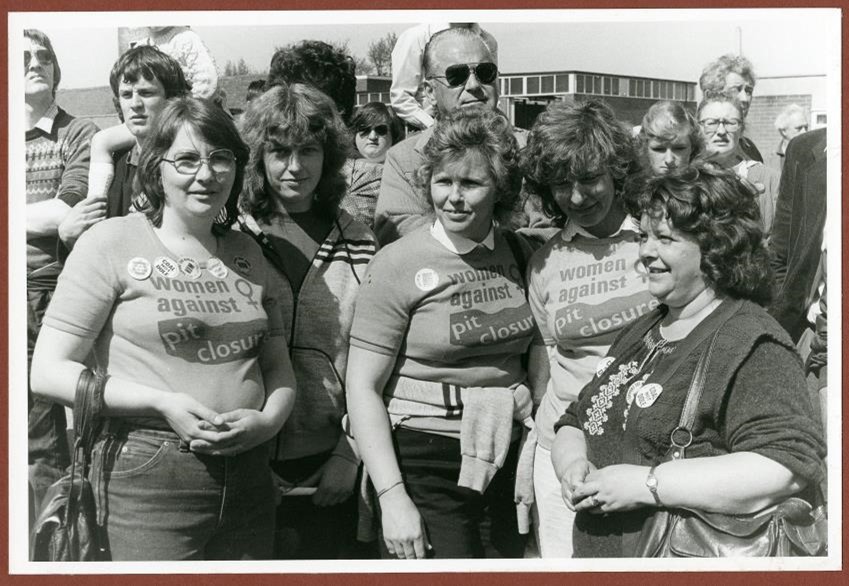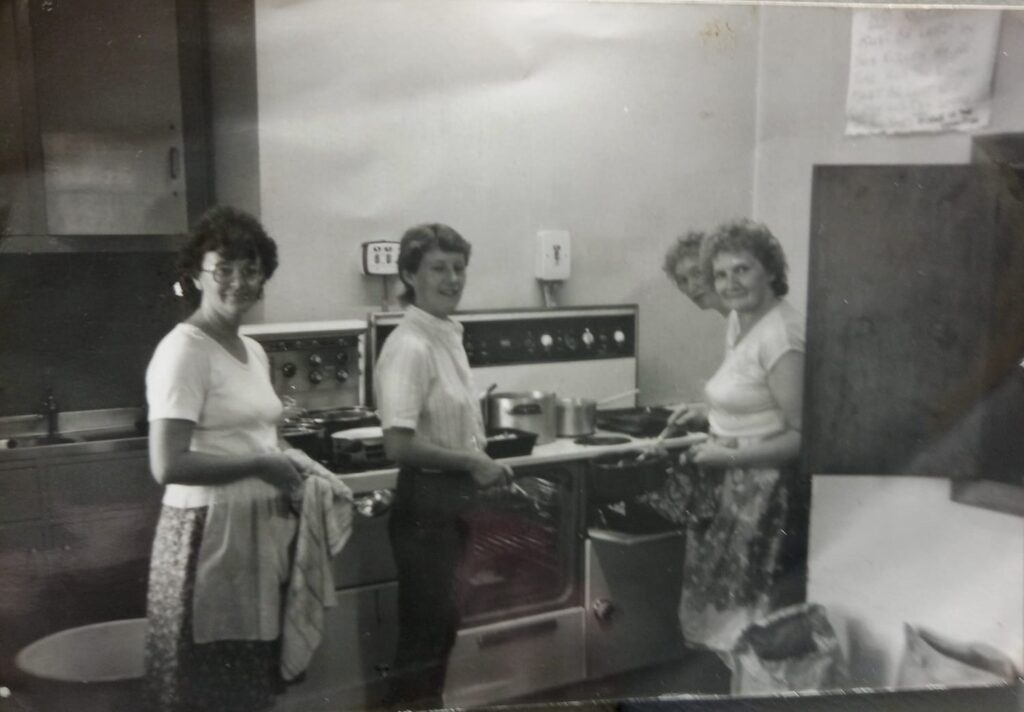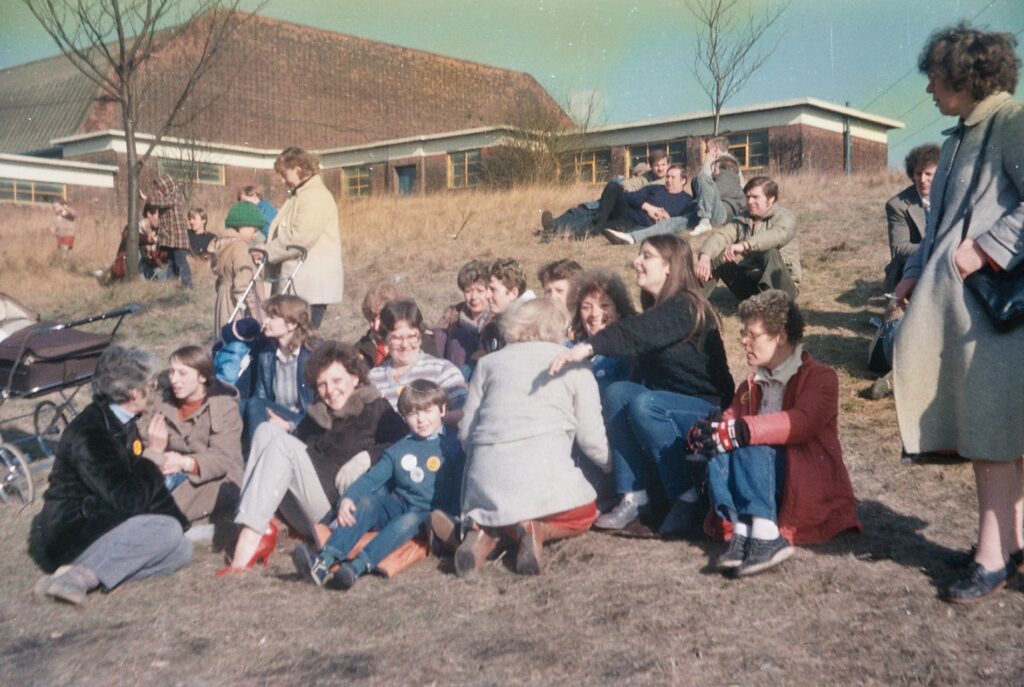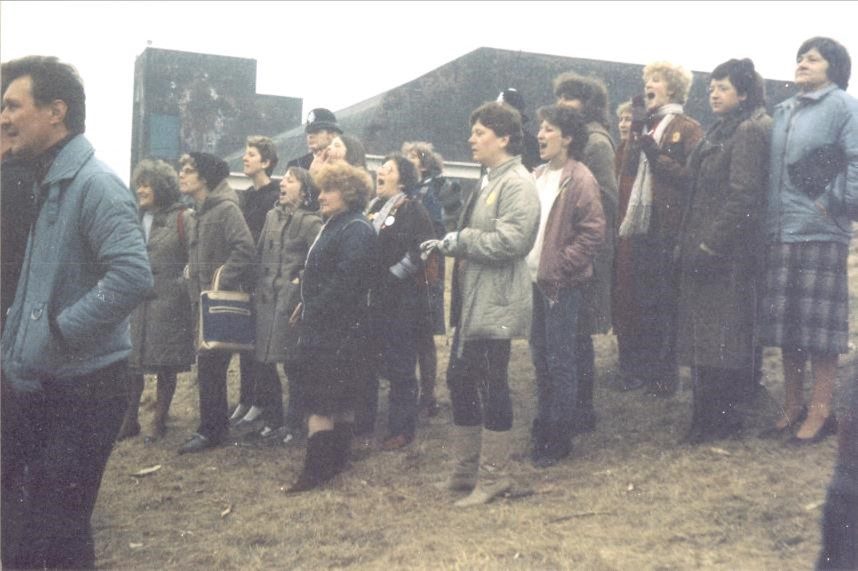Coal mining might have been a predominantly male occupation. But miners were powerfully backed by their wives and families who worked miracles during the strike.
Without women, they wouldn’t have had the strength or the financial support to keep going.

Women were as much a part of the mining community as their husbands, fathers or brothers. They could also see that, without pits, there would be little hope for their children’s futures.
They set up support groups to run soup kitchens and put together food parcels for striking miners’ families. They held charity events at local pubs and clubs and dished out donations from other national and international trade unions.
Brenda Boyle, now 87, was instrumental in running the soup kitchen at Silverwood Miners’ Welfare, aka the Baggin. The Baggin was the headquarters for the NUM’s South Yorkshire panel during the strike. Pickets from across the South Yorkshire coalfield would come for their orders each night, and fall back to the Baggin after a day of picketing to be fed.
Brenda had five sons, the eldest four of whom were striking miners. Her husband John had taken redundancy in 1983 after 43 years underground, which helped keep the Boyle family’s head above water during the strike.
Their eldest two sons were married with children of their own. But that still left three growing lads at home to feed, one being still at school.

Despite their own struggle, Brenda and a team of fellow miners’ wives and mothers set up the Baggin’s soup kitchen. They weren’t going to let their community starve, so worked hard to make sure they had at least one good meal a day. They’d take it in turns to cook for striking miners, with the soup kitchen open most days during the strike.
“It was definitely a challenge. We used to go in the kitchen and think ‘what are we giving them today?’ There wasn’t a lot of supermarkets back then. But we had a cadging team, mainly union men who went round shops and other businesses asking for supplies for us to cook with.
“As the strike went on, we got donations from foreign trade unions in Russia or France, but the problem was we couldn’t read the labels so we never knew what was in the tins. You’d open a tin of meat and it was usually my job to taste it. I’d guess it was either stewing steak or minced beef but it could have been dog food for all we knew. I’d joke that they wouldn’t know the difference once it was covered in gravy and a pie crust. I was the chief taster and I’m still here at 87.”
The soup kitchen fed hundreds of hungry miners each week. When the kids were off school, they’d go down for their tea too, which Brenda says was bedlam trying to appease the fussy eaters.
People might question how they managed it with such scarce supplies, but they had to find a way. The miners were reliant on having their bellies filled, giving them the energy to get back on the picket line the next day.
But Brenda always found a way to pull their leg and have a bit of fun to keep spirits up.
“They’d say ‘What’s for dinner Brenda?’ And I’d say we’d got two dead dogs but it’s alright as one’s an Alsatian so it’s quite big. We once had some pigs’ cheeks donated but they still had all the teeth in them. We just chucked them in a pan to boil down. It made beautiful gravy and the meat was good once we’d sifted the teeth out. None of the other women wanted that job so I ended up doing it. I just told the miners to watch their teeth on any teeth they found.”

But women weren’t just confined to the soup kitchens. They were also regularly seen on the picket lines, standing shoulder to shoulder with striking miners. They also went to rallies up and down the country, fighting against pit closures by lobbying the government.
Sylvia Crofts had three young children in the strike, aged 18 months, three and six. She took the younger two to the picket line at Silverwood in support of her husband Reg.
“I could never shout scab. People thought you were daft if you weren’t against them but people had their own reasons for breaking the strike,” she says.

Many women went out to work during the strike to support their families. Brenda was a school cleaner, while Chris Kitchen’s mum worked at a newsagents in the morning and behind a bar in the evening.
Sylvia worked three jobs during the strike to support their young family. She’d clean at a school in the morning, be back at 7am to get her eldest ready for school, do a lunchtime shift as a dinner lady, then the school run, sort the kids’ teas and get them ready for bed, then go out to work nights at Woolworths when Reg was home from picketing. Most days she’d struggle to find time to sleep.
“I thought I had it rough picketing seven days a week, but she had it worse,” Reg says.
“That’s the first time he’s ever said that in 40 years,” Sylvia replies.






